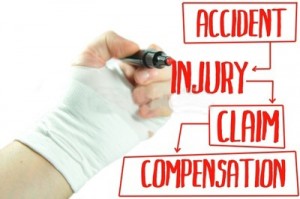
Medical Billing Basics
The basics of medical billing and its role in the physical therapy business are shared by the licensed physical therapist, Nitin Chhoda. He emphasizes the difference between medical billing and regular businesse billing.
 Closely followed by the process of medical coding is the medical billing step. These two important parts of any practice are closely related and intertwined.
Closely followed by the process of medical coding is the medical billing step. These two important parts of any practice are closely related and intertwined.
They work together like the contract administrator and the biller who must base billing on the details of the contract.
In small practices, the medical coding staff member is the same person as the medical biller. It is likely that this trend will continue as medical coding and medical billing systems become more efficient and more integrated.
What is medical billing and why is it different from other forms of billing?
The primary difference between medical billing and any other billing is that medical billing requires an incredible amount of attention to detail and specific codes for each procedure. Naturally, there are other billing processes that are similar, but medical billing seems to be one of the most complex of them all.
Medical billing is what health care providers and health insurance companies go through to get medical expenses paid to the health care provider. The first step is the visit of a patient to the health care provider. The clinician will attempt to diagnose the problem the patient is having in an attempt to classify the exchange for the health insurance company.
Medical Coding and Billing
The billable services are then coded by the medical coding staff member and those codes are used for medical billing to the health insurance company. The rates for services are pre-set by the insurance company and the clinic, which is why clinics only take certain types of health insurance.
They have to negotiate prices with each company they work with. If there are any mistakes in the medical billing service and process, the insurance company will reject or deny the claim.
A rejected claim is a bill that has some clerical, invalid codes, or any other minor detail that can be a cause for rejection. Rejected claims must be researched by the medical biller and re-submitted correctly.
 Denied claims have been processed but the insurance company has deemed them unpayable. A denied claim can be re-submitted or appealed if the medical biller believed the denial was unfounded.
Denied claims have been processed but the insurance company has deemed them unpayable. A denied claim can be re-submitted or appealed if the medical biller believed the denial was unfounded.
Medical Billers and EMR
Medical billers have to deal with about a 50% rejection and denial rate. There are so many opportunities to make mistakes and insurers are much quicker to deny or reject a claim than they are to pay one.
The back and forth can be frustrating and exhausting. But more importantly, this paperwork headache is incredibly time consuming. Medical billing has turned into a very inefficient process and medical billers can start to feel that they are wasting incredible amounts of time just because of a tiny mistake. Medical billing can be a tough job.
Electronic medical records are attempting to streamline the process, however, and the job of the medical biller may get easier in the very near future. Many EMR systems are actively marketed as easy-to-use for medical billing. They can decrease the occurrence of mistakes and speed up the corrections process.



















